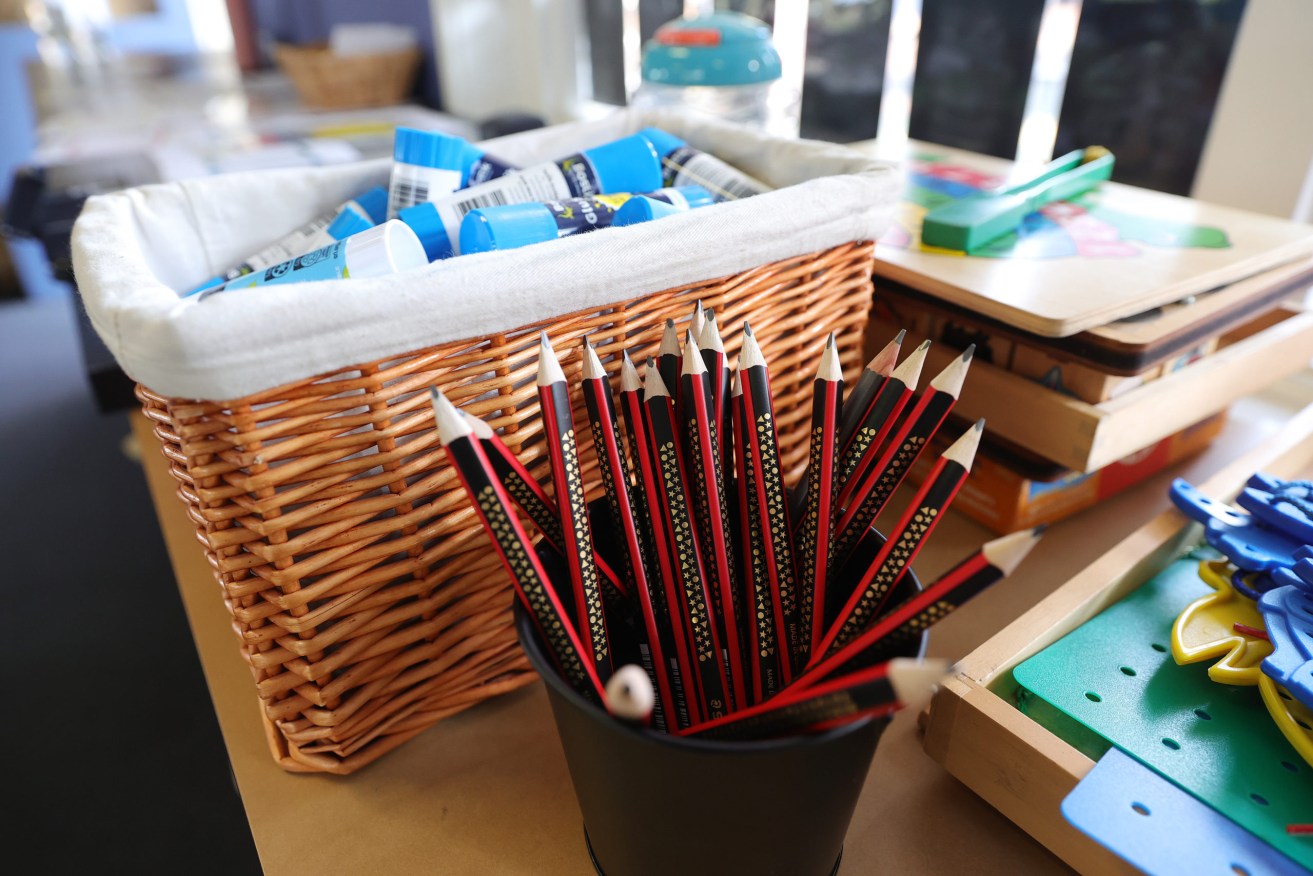Education Dept, teachers’ union haggle over ‘vulnerable’ definition
One day out from the start of the school year, the Education Department is yet to figure out what arrangements will be put in place to keep teachers who have chronic illnesses or are pregnant safe from the spread of COVID-19, the SA teachers’ union says.

Photo: Con Chronis/AAP
Australian Education Union SA president Andrew Gohl told parliament’s COVID-19 Response Committee that he was currently “haggling with bureaucrats” in the Education Department to finalise the definition of a “vulnerable” worker ahead of the start of Term 1 on Wednesday.
He said the department was also yet to finalise whether teachers who are deemed vulnerable would be entitled to additional leave or changed working arrangements.
Gohl described the situation as “infuriating”, saying the Education Department wanted to come up its own definition of what constitutes a vulnerable worker despite SA Health and the federal government already providing guidelines.
“Notwithstanding the fact that the federal health website is really clear about what vulnerable workers are, that the SA Health website is really clear about what vulnerable workers are, we are at the moment haggling with bureaucrats to come up with a definition of what a vulnerable worker is,” he told the committee this morning.
“It’s infuriating to have to deal with such differing levels of advice… around just simply trying to make people have a safe working environment.
“That’s all this is – it’s about making workplaces safe for children and those who educate them.”
SA Health defines vulnerable people as those aged over 65, those who have chronic health conditions, pregnant women and Aboriginal and Torres Strait Islanders.
In a letter to Gohl last month, Education Department chief executive Rick Persse said his staff were “liaising with SA Health regarding a clear definition of ‘vulnerable’ with respect to staff” and the department was “committed to resolving the working arrangements for vulnerable employees”.
Gohl told this morning’s committee hearing that the union was particularly concerned about teachers who have chronic illnesses.
He said pregnant teachers were also “extremely anxious” about potentially becoming infected with COVID-19.
“We have an ageing teacher workforce, there’s a number of workers who are immunocompromised and are, indeed, going home to immunocompromised family members as well,” he said.
“The last two weeks have really been flurry of meetings with the department really working out things that at the moment include how do we manage and look after our most vulnerable workers.”
InDaily contacted the Education Department for comment.
Meanwhile, Gohl said a decision last month to send just over 1000 air purifiers to schools in Port Pirie “defies logic”, given air pollution has been a longstanding issue for the Spencer Gulf town which is home to a lead smelter.
The Government purchased the air purifiers despite commissioning a study that found the machines are not effective at mitigating the spread of COVID-19.
Asked why the air purifiers were sent to Port Pirie, Gohl responded: “I think it’s relatively well-known that Port Pirie is one of those areas because of the lead smelter, the product of smelting lead is a gas and fallout of lead amongst other heavy metals”.
“The technology has been available and it’s only become apparent under current circumstances that such technology exists.”
It comes after Education Minister John Gardner yesterday apologised for delays delivering rapid antigen tests to some preschools and child care centres.
The Government intended for all early childhood workers to receive the testing kits before the start of the school term so that they could follow advice to get tested every Monday, Wednesday and Friday.
But some private child care centres yesterday reported they were yet to receive their supplies.
Some schools also reported delays receiving their tests, despite the government ordering teachers who are identified as “classroom contacts” to pass a daily test for seven days.
Gardner said it was a “very significant logistical challenge” to deliver the RATs to schools and preschools and the government was working to address the delays.
“I, like they, would have absolutely loved those RAT devices to have been provided last week as was our intention and I’m very sorry that didn’t take place,” he said.
Face-to-face learning will resume tomorrow for students in preschools, Reception and Years 1, 7, 8 and 12.
All other year levels will spend the first two weeks of Term 1 learning online, before heading back to classrooms on February 14.




